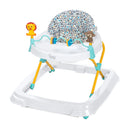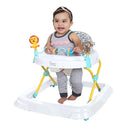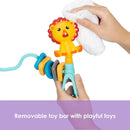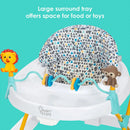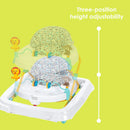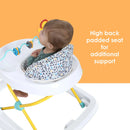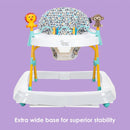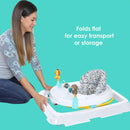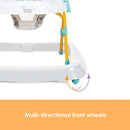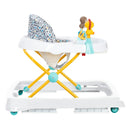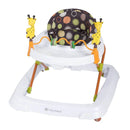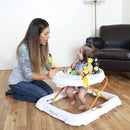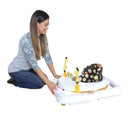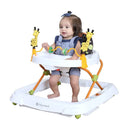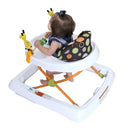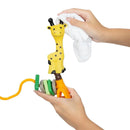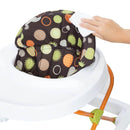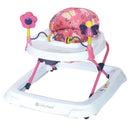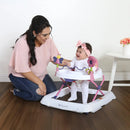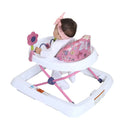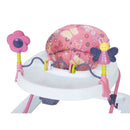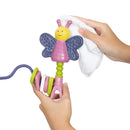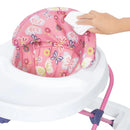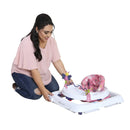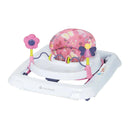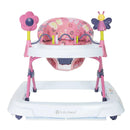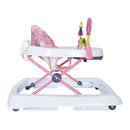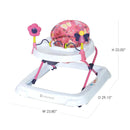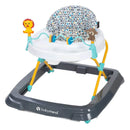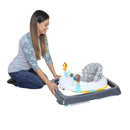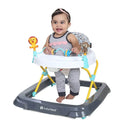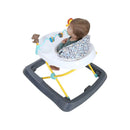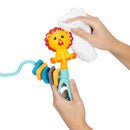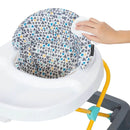Product Details
Download Product Instruction Manual
Features
- Removable toy bar with toys.
- Large surround tray for food or toys.
- Three-position height adjustable.
- High back padded seat.
- Folds flat for easy transport or storage.
- Extra wide base for superior stability.
- Multi-directional front wheels.
Description
Designed for comfort and with your little one's needs in mind, this Baby Trend® Walker is a breeze to set up, clean, fold and most importantly, easy for your baby to use. Along with the multi-directional wheels that offer freedom of movement, the extra wide base provides superior support and stability so your baby can be confident as they navigate new grounds. The large surround tray provides plenty of space for snacks and play! This activity walker also features 3-position height adjust. Recommended for babies who can sit up unassisted and are under 30 lb and less than 32" tall.
Recommended Use
- This walker is to be used only by infants, who are old enough to sit upright on their own and are ready to learn to walk (about 6 months old).
- Discontinue using the walker when the child can walk unassisted, reaches 30 lb in weight, or reaches 32" in height.
Technical Details
- Product dimensions: 23.8" x 29.1" x 38.8"
- Product dimensions folded: 29.13" x 23.88" x 9"
- Maximum weight recommendation: 30 lb
- Maximum height recommendation: 32"
- Materials: WK37804, WK37C18A (BC)
- 100% polyurethane foam pad
- View law label
- Materials: WK37804
- 100% polyurethane foam
- View law label
- Materials: WK37C18A (GP)
- 56% polyurethane foam, 44% polyester fiber
- View law label
- Number of items: 1
- Batteries required: No
- Item weight: 8.07 lb







































